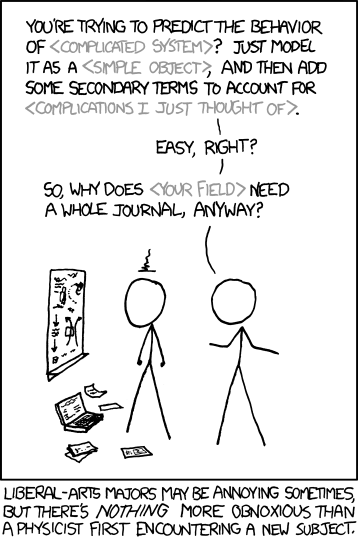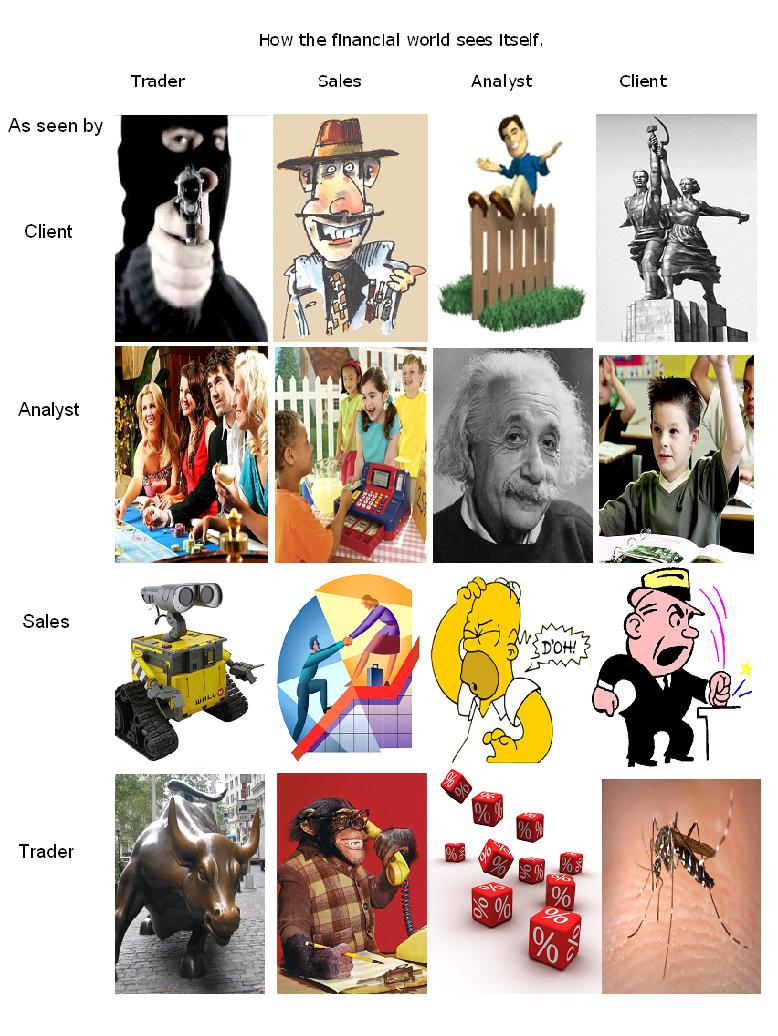"...To see oursels as ithers see us!
It wad frae monie a blunder free us
An foolish notion:"
Yes, everyone has linked the latest, greatest XKCD:
So painful, so true.
Fortunately the other thing about physicists, is that we have a great sense of humour.
And we need it.
Steve Hsu has been doing some provocative ruminating along these lines.
This of course leads to classification of physicists, there being two types:
Type I is smart.
Type II is hard working.
Type Ib/c is smart and hard working, and therefore really sub-category of Type II
while Type Ia is smart but lazy.
Type IIn is hard working but smart,
and there is no other Type II
From which we conclude that smarts and hard work do not commute.
Interestingly, physicists are not the only field with the capacity for introspection and analysis:
The Big Picture provides a similar perspective on finance:



I don't know if I agree with this classification system. The first classes should be distinguished by the easiest observable: hard working vs. lazy. Self-classification of smart tends to be systematically biased (besides the imposters). I for one, know I'm lazy 99% of the time.